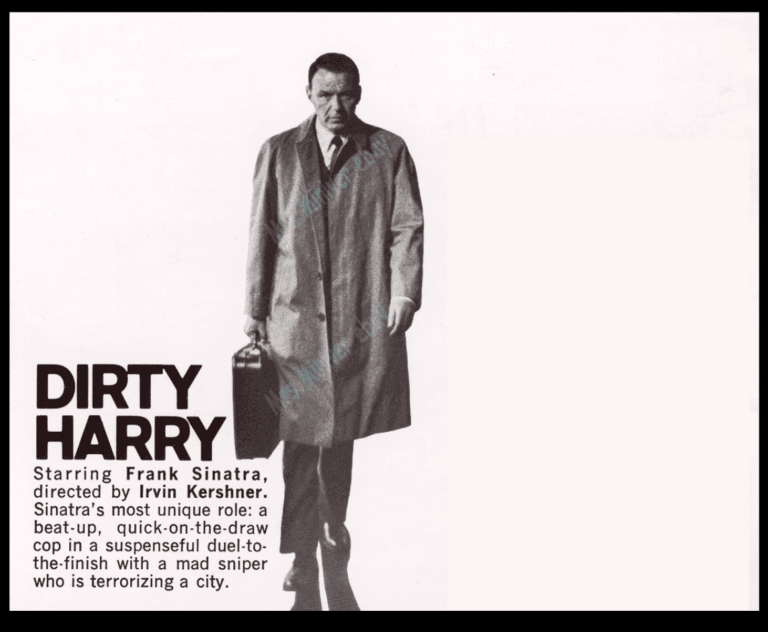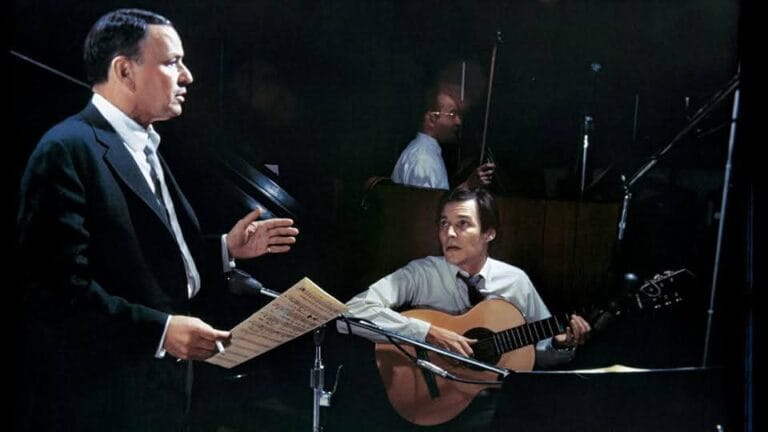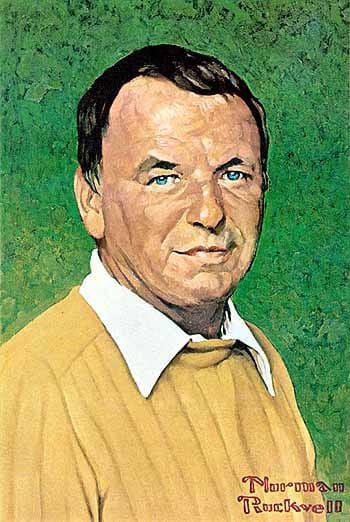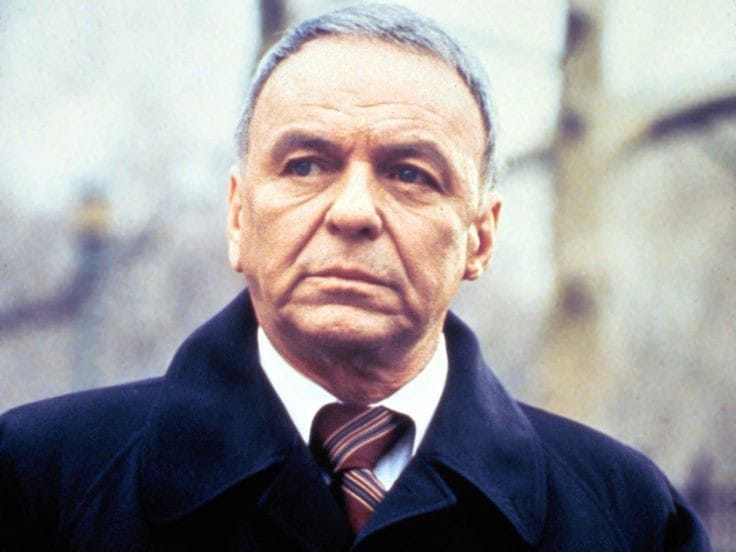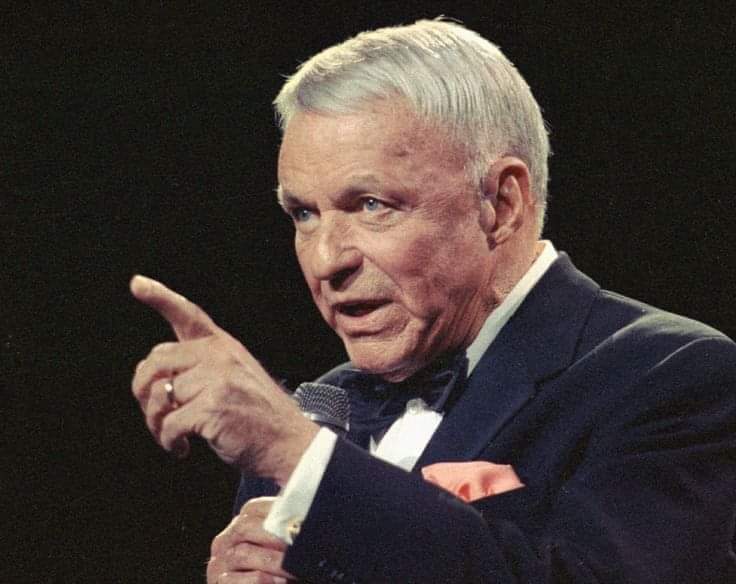
THE LAST YEARS OF FRANK SINATRA.
EPISODE 1
“And when the guy with the scythe comes to pull my sleeve, I’ll go away singing.”
(“Before The Music Ends”, Frank Sinatra, 1979)
In 1990, Frank Sinatra will turn seventy-five years old and the media, as they had been doing for half a century, talk about him assiduously, with the hot and polarized prose that only the characters that really matter inspire. Although the voices that have only criticized him for aspects of his personal life continue to resonate, this will be one of the years in which greater recognition is given to the figure and work of Frank Sinatra; Not in vain is he a living legend whose legacy has prevailed over all adversities.
But it is also going to be an especially bitter year in terms of personal tragedies. The artist will face the violent contrast of emotions by pouring himself into concerts feverishly, with almost eighty recitals inside and outside the United States.
On January 25, Ava Gardner died of pneumonia. The physical decline of the actress, caused by her excessive alcohol consumption, had worsened in recent years. She and Frank never lost touch, and the embers of that impossible love had never been extinguished. In fact, in his home in Palm Springs, Sinatra had for years a sculpture of Ava in the mythical role of “The Barefoot Contessa” (1954). When he receives the news, Frank breaks down, crying, blaming himself for not having been with her at that last moment. He does not have the strength to attend the actress’s funeral or burial, but he sends a wreath of flowers with a message that says: “With love, Francis.”
FRANK SINATRA RADIO 24h
On January 30, one day after Ava’s burial, Sinatra inaugurated the Knickerbocker Arena in Albany, New York, before ten thousand people who sold out the tickets on the same day they went on sale. Almost at the end of the concert, he surprises the audience by singing the rare “Lonely Town”, a moving hymn to loneliness that he had recorded in 1957 for the album “Where Are You”, and that could well serve as a tribute and final goodbye to Ava, who leaves a void in her heart that nothing and no one can fill again:
“Unless there is love, the world is a lonely place, and every city is a lonely city.”
After attending this concert, journalist William Kennedy writes in the New York Times:
“You listen to him and you know that he is not the Frank of his best years, but it doesn’t matter. It’s his sound, his cadence, his songs, it’s him, as good as he can be, and that’s already very, very good. (…) and the aged admirers, closing the circle from 48 years ago, come to shake his hand, then he disappears down the stairs and you follow him with your eyes because he carries with him the sound of your youth, the songs of your middle age. And you think, ‘the song is you, buddy, the song is you.‘”
Without time to assimilate the loss of the great love of his life, on February 6, a heart attack took composer and close friend James Van Heusen at the age of seventy-seven in California. Van Heusen teamed up with Sammy Cahn to write a multitude of Sinatra’s greatest hits, including “All The Way,” “High Hopes,” “My Kind Of Town,” and “Come Fly With Me.”
THE LAST YEARS OF FRANK SINATRA
On May 16, during a series of concerts at Radio City Music Hall, Frank receives the third blow of death: Sammy Davis Jr., dies of throat cancer at the age of sixty-seven. Davis was diagnosed in the fall of 1989 and the disease consumed him very quickly. Completely dejected, Sinatra postpones the remaining concerts to say goodbye to his friend and accompany the family; In a final gesture of generosity and gratitude, the singer is responsible for paying all of Davis’s funeral expenses and gives Altovise, the widow, one million dollars to avoid the seizure of her house due to the debts incurred by Davis with Tax authorities. In November 1989, the ABC network had recorded a gala tribute to mark the sixtieth anniversary of Sammy’s career. The emotional show featured a constellation of stars, including Michael Jackson, Stevie Wonder, Ella Fitzgerald, Quincy Jones, Gregory Peck, Dean Martin, Dionne Warwick, and of course, a visibly emotional Sinatra who opened the show with a version of “Where Or When”. Frank had asked to sing first so he could leave immediately; He was not able to see Sammy in those conditions attending his own obituary.
Link to a performance of “New York, New York“, Radio City Music Hall, June 1990:
On July 8, after a series of four concerts in London, Frank and Barbara attend a party hosted by actor Michael Caine at the prestigious Langan’s Brasserie. Upon his return to the United States and after three recitals at Bally’s Grand in Reno (Nevada), he took a month’s vacation.
In his downtime, Frank alternates evenings at his favorite clubs and restaurants with quiet days in which he gets up late and stays at home dressed in his bathrobe and pajamas, watching game shows on television and playing with his dogs. Sometimes he goes to his studio to paint a picture or takes care of and enjoys his collection of model trains. When she dine at home, she likes simple food and often resorts to pre-cooked food, to the despair of Barbara, who is always determined to order the cooks to prepare exquisite and elaborate dishes.
From August 17 to November 3, Frank continues to fulfill a demanding concert schedule. The press reviews are mostly kind and show that the wrinkles that time has left on Sinatra’s voice play in favor of the emotional impact of the songs. The live recordings of the time attest to how Sinatra relies more on interpretive intensity, providing a more aggressive touch to the rhythmic themes and giving his songs of heartbreak a touching vulnerability. A critic attending the concert at California’s Concord Pavilion on August 19 writes:
“He brought the house down with “One For My Baby,” which he sang while smoking a cigarette and sipping a glass of whiskey. He sang it with his soul wide open. That taciturn voice, which suggests a tortured passion, brought memories of years of love and loss to many in the audience. You could see it in their faces.“
Critics also draw attention to the screens installed at the foot of the stage to help the singer remember the lyrics of his repertoire, something initially disconcerting, given the time he has been performing them. But the truth is that Frank has been fighting for years against a progressive deterioration of his sight, hearing and memory. He also suffers from a strong dependence on the antidepressant Elavil, whose side effects include nausea, psychosis, vertigo, blurred vision, heart rhythm disorders and motor difficulties.
FRANK SINATRA RADIO 24h
But he never loses an iota of passion for his work. On September 9, he addressed an open letter to singer George Michael in response to an interview the latter gave to Calendar magazine in which he expressed his desire to “reduce the pressures of his celebrity status.” The letter is a declaration of principles and a free lesson from the best possible teacher. Here is an excerpt from said letter:
“I don’t understand it (…) Here we have a boy who “wanted to be a pop star since he was seven years old.” And now he’s a successful performer and songwriter at twenty-seven and he wants to stop doing something that tons of young talents around the world would shoot their grandmother for.” (…) Come on, George, let yourself go. Move on, man, Dust off those gossamer wings and fly to the moon of your choice and be thankful you’re carrying the suitcase we’ve all had to carry since those arduous nights sleeping on buses and helping the driver unload the instruments. (…) The tragedy of fame comes when no one comes to see you and you are there singing for the cleaning lady in an empty joint (…) And you are not even remotely in that situation; You are the leader at the top rung of a ladder called stardom. (…) Talent should not be wasted. (…) Those who have it must embrace it, nurture it and share it (…) Trust me. I have been there.“
By Mahnuel Muñoz https://www.facebook.com/mahnuelmunozoficial
If you want to visit more articles about the life of Frank Sinatra enter the following Sinatra Radio 24h link: https://sinatraradio24h.com/category/articles/
We remind you that you can also listen to Sinatra Radio 24 hours on your mobile phone by downloading our free applications for Android in the Play Store https://play.google.com/store/apps/details?id=sinatra.radio24h

